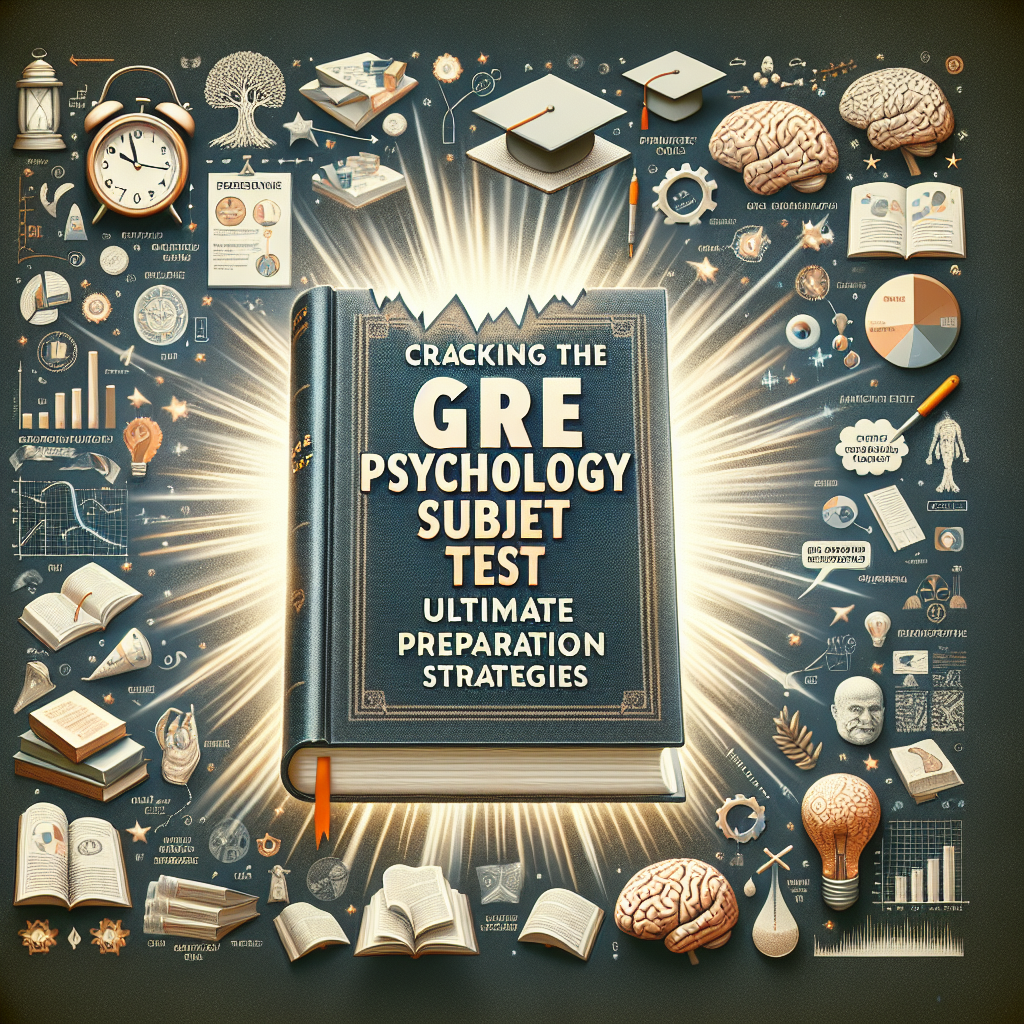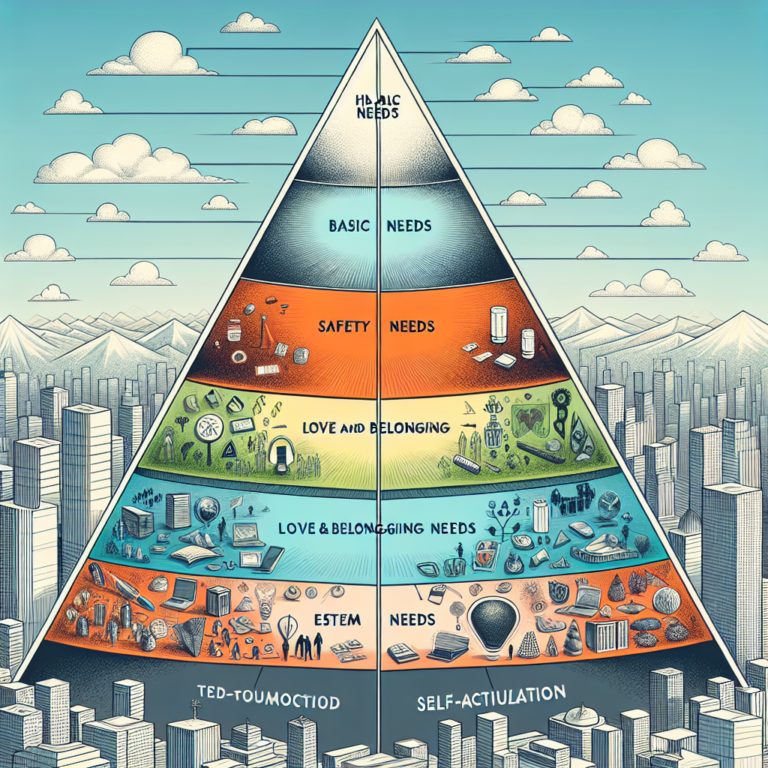
Cracking the GRE Psychology Subject Test: Ultimate Preparation Strategies
Preparing for the GRE Psychology Subject Test can often feel overwhelming, especially given the vast array of material covered in psychology. Determining the best approach to study effectively can make all the difference in your performance. In this article, we will explore essential, proven strategies for success in "Cracking the GRE Psychology Subject Test: Ultimate Preparation Strategies." Whether you’re a seasoned psychology student or just starting out, this comprehensive guide will equip you with the tools you need to tackle the test confidently.
Introduction
Imagine standing at the threshold of your academic dreams, with graduate school admissions just a test away. The GRE Psychology Subject Test is a crucial piece of that puzzle, evaluating your understanding of core psychological concepts and theories. But what if there were successful strategies to not just prepare but excel? In this guide, we’ll reveal essential tactics that can elevate your preparation process, ensuring you approach the test with confidence and clarity.
Understanding the GRE Psychology Subject Test
What to Expect
The GRE Psychology Subject Test assesses your knowledge across various areas of psychology, including:
- Biopsychology
- Cognitive Psychology
- Developmental Psychology
- Social Psychology
- Clinical Psychology
Understanding the scope of the test is the first step in "Cracking the GRE Psychology Subject Test: Ultimate Preparation Strategies." The exam consists of 205 multiple-choice questions that cover undergraduate psychology topics, with a three-hour time frame in which to complete it.
Essential Study Strategies
1. Create a Structured Study Plan
Why It Matters:
A structured plan will keep you focused and organized. Without one, you risk feeling overwhelmed by the breadth of material.
How to Implement:
- Timeline: Determine how many weeks or months you have before the test.
- Daily Goals: Break down your study materials into manageable chunks.
- Review Periods: Incorporate regular intervals to review what you have learned.
Sample Study Schedule
| Week | Topics | Review |
|---|---|---|
| Week 1 | Biopsychology | Practice Questions |
| Week 2 | Cognitive Psychology | Review Notes |
| Week 3 | Developmental Psychology | Create Flashcards |
| Week 4 | Social Psychology | Mock Test |
| Week 5 | Clinical Psychology | Cumulative Review |
2. Utilize High-Quality Study Materials
Selecting appropriate study materials is vital. Some resources include:
- Official GRE Guides: The ETS offers test-specific prep materials that can be essential for understanding the exam format.
- Psychology Textbooks: Familiarizing yourself with core concepts will bolster your confidence.
- Online Courses: Platforms like Coursera and Khan Academy can provide additional insights through structured courses.
3. Engage in Active Learning
It’s not sufficient to passively read through your materials. Engaging with the content leads to higher retention.
Techniques Include:
- Flashcards: Create flashcards for key concepts, theories, and psychologists.
- Study Groups: Collaborate with peers to discuss topics, as teaching others can deepen your understanding.
Case Study: The Study Group Effect
In a recent study conducted at a university in California, psychology majors who participated in study groups scored on average 15% higher on practice tests than those who studied alone. This highlights the effectiveness of collaborative learning.
Practice Makes Perfect
4. Mock Exams and Practice Questions
Taking practice exams is an essential tactic in "Cracking the GRE Psychology Subject Test: Ultimate Preparation Strategies."
- Frequency: Integrate weekly mock exams into your study schedule.
- Format: Familiarize yourself with the exam format by using official practice tests from the ETS.
- Analysis: After taking a practice exam, review incorrect answers to identify knowledge gaps.
Visualization Techniques for Retention
Creating visual charts or mind maps can help connect different psychological concepts. For example, linking theories of cognitive psychology to their practical applications in everyday scenarios.
Understanding the Scoring System
5. Familiarize Yourself with the Scoring Mechanism
Understanding how the GRE is scored can help you create targeted study strategies:
- Each correctly answered question adds to your score, while incorrect answers do not penalize you.
- Your score will range from 200 to 990 in 10-point increments.
Focusing on Strengths and Weaknesses
Using your mock test results, develop a strategy to enhance your weak areas while further solidifying your strengths.
Test Day Tips
6. Prepare for the Day of the Test
True preparation includes knowing what to expect on test day. Here’s a checklist:
- Rest Well: Ensure you have enough sleep leading up to test day.
- Eat a Nutritious Meal: Fuel your body with foods that promote focus, like proteins and whole grains.
- Arrive Early: Plan to arrive at the testing center with ample time to spare.
Mindfulness Techniques for Reduced Anxiety
On test day, employing mindfulness techniques such as deep breathing or visualization can help manage anxiety. Picture yourself confidently answering questions and performing at your best.
Conclusion
As you embark on your journey to "Cracking the GRE Psychology Subject Test: Ultimate Preparation Strategies," remember that thorough preparation is not just about memorizing facts—it’s about understanding concepts and applying them effectively. Leverage high-quality materials, adopt active learning strategies, and remain consistent. With determination and the right approach, you can turn this challenge into an opportunity for academic advancement.
FAQs
1. How long should I study for the GRE Psychology Subject Test?
It’s generally recommended to study for at least 6-8 weeks prior to the test, allowing for comprehensive material coverage and adequate review time.
2. What is the best way to practice for the exam?
Utilizing a mix of official practice tests, quiz questions, and active learning strategies (like flashcards and study groups) is most effective.
3. Are there specific textbooks I should study?
Yes! Recommended texts include "Psychology: Themes and Variations" by Weaver and "The Psychopathology of Everyday Life" by Freud.
4. How many questions are on the GRE Psychology Subject Test?
The test contains 205 multiple-choice questions covering a wide range of psychology topics.
5. Can I bring materials to the testing center?
No, personal study materials, bags, or electronic devices are not permitted inside the testing center. Be sure to bring only acceptable identification.
With these strategies in hand, you have the tools necessary to approach the GRE Psychology Subject Test with confidence. Equip yourself well, embrace the challenge, and take your next steps toward your educational goals!















